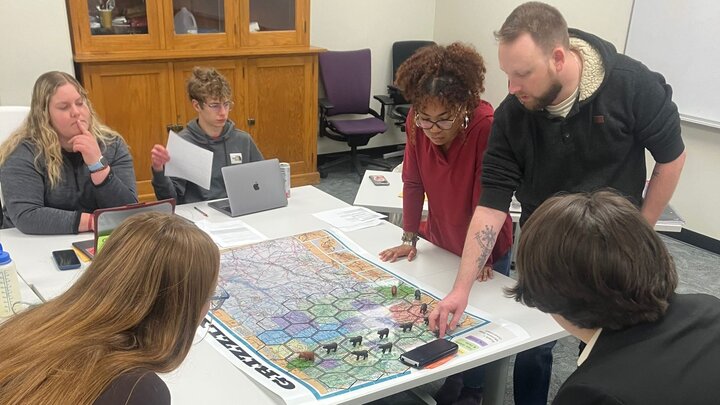Congratulations to Dr. Patrick Bitterman and fellow researchers for receiving a $1.4 million Coupled Natural and Humans Systems (CNH) grant from the National Science Foundation. The interdisciplinary research team includes researchers from UNL, University of Maryland, University of Maryland Center for Environmental Studies, Dartmouth College, and the Chesapeake Bay Program. Their project will study how policy across multiple spatial scales is affecting – and responding to – changes in land use and water quality across the Chesapeake Bay Watershed.
The four-year project will develop a coupled modeling system to simulate how socio-economic changes and policy decisions in the Chesapeake Bay watershed impact water quality. At the center of the coupled model is an investigation of how changes in water quality in the Chesapeake Bay influence individual, group, and institutional decision-making. Simulations will explore plausible alternative futures, including regional smart growth, business as usual, and policy failure in the context of climate change. Examination of several scenarios will allow the team to determine how environmental degradation can potentially impact different communities and how they can drive different policies and actions for land use, transportation, and land cover.
At UNL, Dr. Bitterman's team will develop an agent-based model that will model how local jurisdictions develop and implement watershed improvement plans in response to top-down pressures from federal and state governments while integrating local preferences, environmental quality, and economic constraints. This new project expands upon Dr. Bitterman’s ongoing work in the Lake Champlain Basin in Vermont, where he is studying polycentric water governance and social-ecological resilience.
“Effective water governance is a collection of hard problems that requires a diverse set of actors to work more or less together to achieve goals where we likely won’t see immediate progress. This project will help us to understand how the many local decisions across the Chesapeake Bay Watershed collectively respond to and affect water quality across the watershed and within the Bay. This project contributes to the re-emergence of the Geography program at UNL, including its new home within the School of Global of Integrative Studies. We look forward to growing Geography’s reach within UNL and across Nebraska.”




